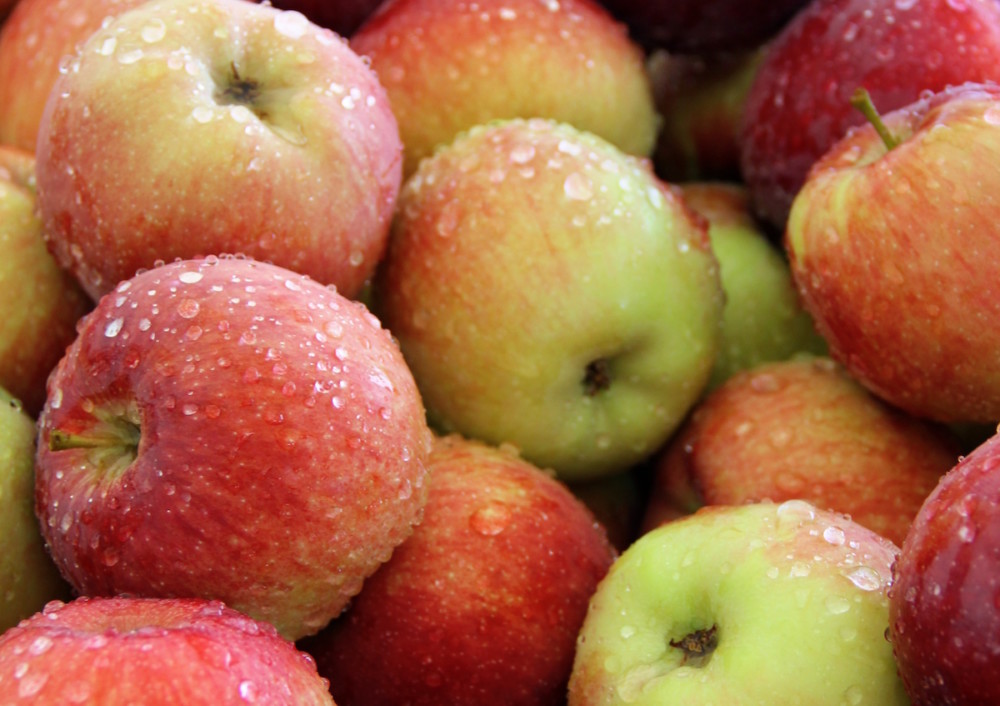
Apple Tasting
HOW DID THE EVENT START?
Jon Denney: It started 31 years ago, but a kind of apple tasting started even a year before that. There was a Home Orchard Society that I always enjoyed going to, and they had lots of different apples there, but you could never really taste them, so I bought a bunch of apples back for the staff to try, thinking that they should know what apple trees they were selling instead of just a description on a page. 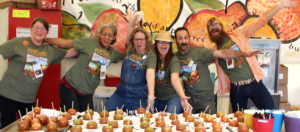 Then I thought the next year, “Well, maybe we should do this for our customers too,” so we started buying in any apples that we could get from all around. We always have more than 50 different varieties, and we’ll have some pear varieties, but they’re much harder to do for an apple tasting because the riping is so much harder to do on those.
Then I thought the next year, “Well, maybe we should do this for our customers too,” so we started buying in any apples that we could get from all around. We always have more than 50 different varieties, and we’ll have some pear varieties, but they’re much harder to do for an apple tasting because the riping is so much harder to do on those.
HOW HAS THE EVENT EVOLVED?
Denney: We started out with just having it one Friday, Saturday and Sunday. Fall in the Northwest is great, but if you start bu ying in a bunch of fruit for a special event, and it rains that weekend, it makes it hard. We then started having it two weekends, so that if it rained one weekend, we’d typically get at least one good weekend, and if we get two good weekends, it’s crazy. We now bring in more than 150,000 pounds of apples and get more than 50,000 people those weekends. Our average sale goes to about 25 percent of normal, but it’s definitely good. Our traffic count goes way, way up and our average sale goes down, but the margin on the apples is really good. Then the days in between the two weekends, we’ve even started specializing to have a Senior Day and then another day for schools to bring the school kids over, and it’s just amazing the success that it’s been. I guess I didn’t realize in the beginning that apples are something that whether you’re 3 years old, 30 years old or 90 years old, there’s a real affinity.
IN ADDITION TO THE TASTING, WHAT ELSE IS GOING ON DURING THE EVENT?
Denney: We buy apples in bins. People want to be the first ones there, and they are carrying apples out by the cart full. We have live music, and we have a kid’s tent, which is always popular. We get a bin of those small pumpkins, and we give 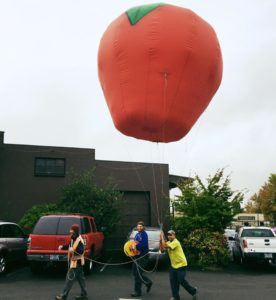 every kid a pumpkin, and they put glitter or whatever they want to put on it. There are also a lot of other vendors that come in and set up booths. For our 21st apple tasting we brought in hard cider, so now there are a number of cider makers that come in, and they’ll do a cider tasting too. We have the culinary institute in town come out and do cooking classes. We do an apple tasting T-shirt or sweatshirt every year that people can purchase, and we give them to all the employees. My philosophy has always been to try and sell them at cost, and I look at the profit as being the advertising we get from the shirt. At this point over the last 30 some years, we have jillions of shirts out there.
every kid a pumpkin, and they put glitter or whatever they want to put on it. There are also a lot of other vendors that come in and set up booths. For our 21st apple tasting we brought in hard cider, so now there are a number of cider makers that come in, and they’ll do a cider tasting too. We have the culinary institute in town come out and do cooking classes. We do an apple tasting T-shirt or sweatshirt every year that people can purchase, and we give them to all the employees. My philosophy has always been to try and sell them at cost, and I look at the profit as being the advertising we get from the shirt. At this point over the last 30 some years, we have jillions of shirts out there.
WHO’S ATTENDING AND HOW DO YOU PLAN FOR THE CROWDS?
Denney: Years ago, we had local horticultural expert Mike Darcy survey people standing in line, and I was shocked to find out half the people had never been to an apple tasting before and 30 percent had never been to the nursery before, so 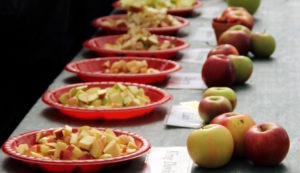 it really was bringing in a lot of people. Now we don’t even advertise it much because we already have so much attention. We fly a large helium balloon that is very visible from blocks away, so when people see the helium balloon, they know that it’s apple tasting time. For staff, it is all hands-on deck, and we’ve developed a spreadsheet over the years with what to do when, but it is still a crazy event. We have volunteers and hire an additional 40 people for the weekend, including kids and relatives of our employees and, for those who have applied, we use it as a trial period to find people for the following spring. It’s a great way to see how they interact with people and how hard they work.
it really was bringing in a lot of people. Now we don’t even advertise it much because we already have so much attention. We fly a large helium balloon that is very visible from blocks away, so when people see the helium balloon, they know that it’s apple tasting time. For staff, it is all hands-on deck, and we’ve developed a spreadsheet over the years with what to do when, but it is still a crazy event. We have volunteers and hire an additional 40 people for the weekend, including kids and relatives of our employees and, for those who have applied, we use it as a trial period to find people for the following spring. It’s a great way to see how they interact with people and how hard they work.


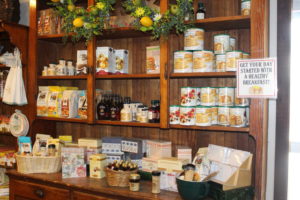
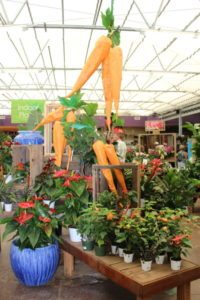
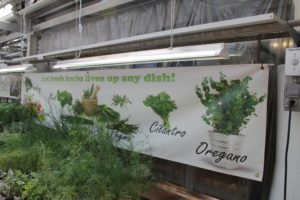
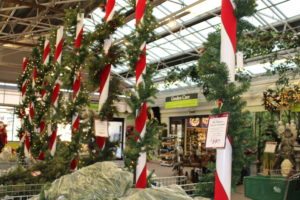
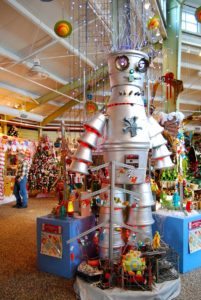
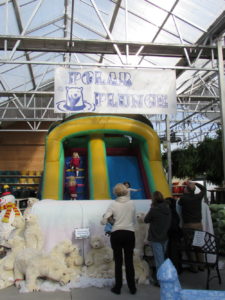
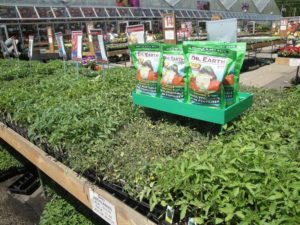
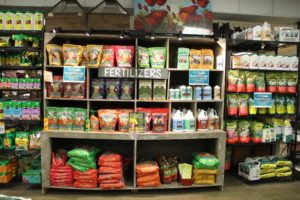
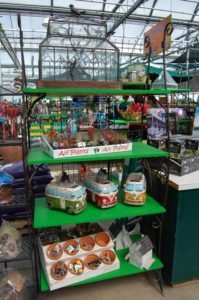
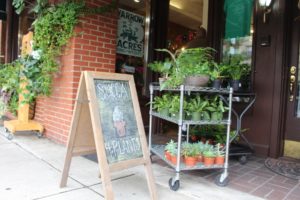
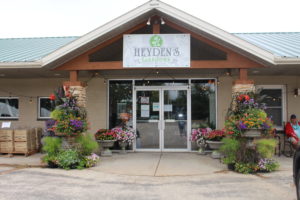
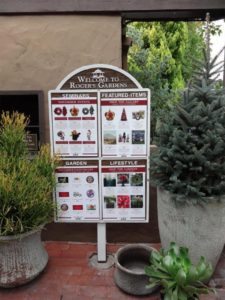
 Videos
Videos





